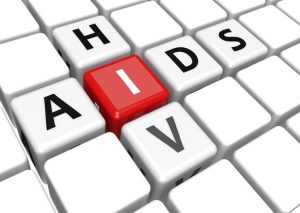
The World Health Organization (WHO) has announced notable reductions in new HIV infections and AIDS-related deaths across Africa, marking a significant milestone in the continent’s fight against the epidemic.
The WHO Regional Director for Africa, Dr Matshidiso Rebecca Moeti, shared this in her statement on Friday, November 29, to commemorate World AIDS Day under the theme, “Take the Rights Path: My Health, My Right.”
Dr. Moeti highlighted a critical shift in global HIV trends, noting that for the first time in 2023, the number of new HIV infections was higher outside sub-Saharan Africa. She pointed out that the African region is leading globally in progress towards achieving the 95-95-95 UNAIDS targets for HIV testing, treatment, and viral suppression, which aim to bridge gaps in treatment coverage and outcomes.
“Seven countries have already achieved the targets, with the overall rating for the region currently at 90-82-76. About 21.3 million people are now on antiretroviral treatment, raising their life expectancy. Botswana (silver tier status) and Namibia (bronze tier status) have both been recognized for notably curbing mother-to-child HIV transmission rates, achieving the required indicators for the ‘Path to the elimination of HIV’ criteria introduced in 2017,” Dr Moeti said.
The region has also made significant strides in implementing biomedical HIV prevention methods, including pre-exposure prophylaxis (PrEP). Countries are rapidly adopting oral and long-acting injectable PrEP and the dipivefrine vaginal ring to ensure broader accessibility to prevention options.
Despite these achievements, Dr. Moeti emphasized the need to address lingering challenges. She cautioned that the value of scientific advancements and tools depends on their universal accessibility, calling for increased investments and policy reforms.
“We have a collective obligation to protect human rights, specifically ensuring that health care is available to everyone, without any discrimination, regardless of their HIV status, background, gender or where they live. Stigma and discrimination cannot be allowed to undermine the gains and impede our progress,” she stated.
Dr. Moeti also stressed the importance of community involvement in shaping strategies and implementing interventions to overcome human rights-related barriers to care. “We must ensure their voices are heard,” she said.
However, the HIV response faces complications from the rising incidence of disease outbreaks in Africa, which strain already burdened health systems. Dr. Moeti underscored the urgency of accelerating the response to the epidemic, emphasizing the need for strong health systems and integrated, person-centred approaches to health care to meet the needs of vulnerable populations.
“Let’s take this opportunity today to acknowledge the progress, but to also renew our joint commitment to eliminating HIV. By protecting everyone’s right to health, and reducing new HIV infections, we can achieve an AIDS-free generation and ensure the sustainability of the HIV response,” she added.



